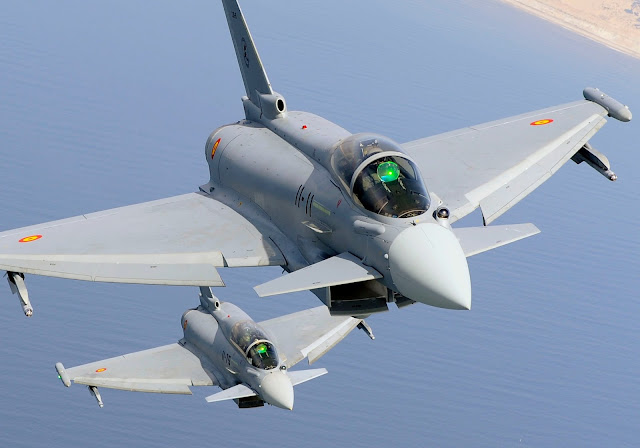Kuwait has confirmed its order for 28 Tranche 3 Eurofighter Typhoons, making the nation the eighth Middle East customer for the jet fighter. The governments of Italy and Kuwait on April 5 ended contract, which will see the aircraft assembled at the plant in Turin Eurofighter partner company Finmeccanica, the commercial potential customer for the consortium agreement.
The 28 aircraft will be integrated with the Captor Euroradar E-Scan scanning electron active array radar. The contract also includes logistics and operational support, and training of Air Force flight and ground crews of Kuwait in relation to the Italian air force, which also operates the type. Typhoon land needed for infrastructure will also be installed in Kuwait.
Mauro Moretti, CEO of Finmeccanica, said that this is the biggest contract the company has ever received, and will benefit the consortium partners as well as smaller Italian companies. The 22 single seat variant and six two seats variant of Typhoons to Kuwait will undergo final assembly in Italy, but the manufacturing of the front fuselage and vertical tail of the aircraft 28 will be held in the UK by BAE Systems Eurofighter partners.
"We welcome the signing of the agreement today between Italy and Kuwait for the supply of 28 Eurofighter Typhoons," adds BAE. "The state of Kuwait will be the third country in the Middle East, and the eighth country in general to operate the aircraft. This confirms the position of the Typhoon aircraft as swing-role combat new and more advanced generation available today."
Eurofighter first revealed the selection of the Typhoon Kuwait in September 2015, three years after the previous order for the type of Oman. The other client Typhoon Middle East is Saudi Arabia, while Austria, Germany Italy, Spain and the United Kingdom also operate the jet fighter.
"This will allow Kuwait to benefit from the critical mass that developed in the Gulf and the many benefits it brings to an air force in terms of interoperability, training and support service."
